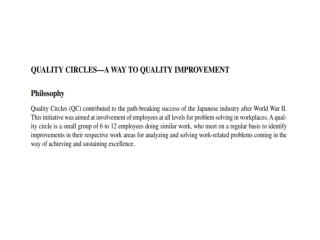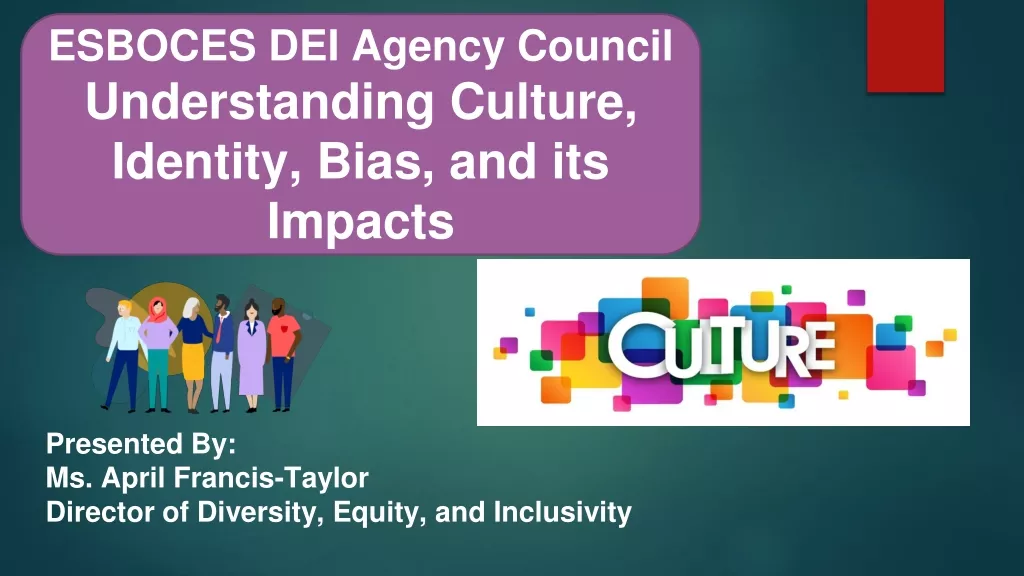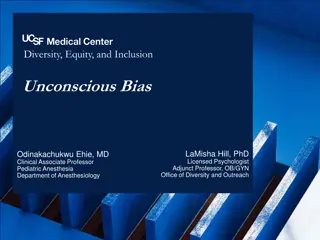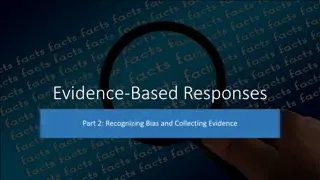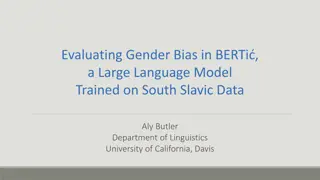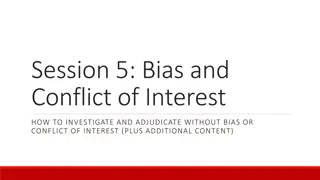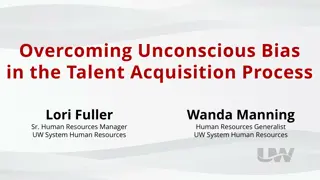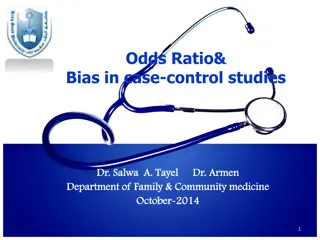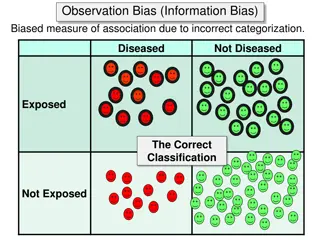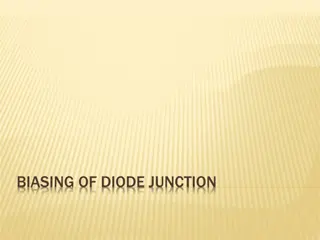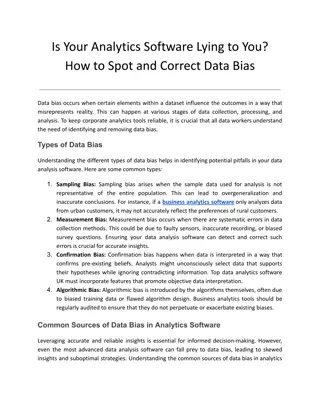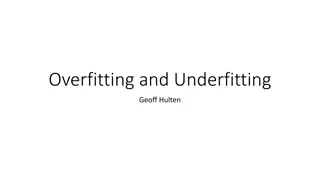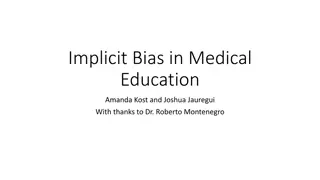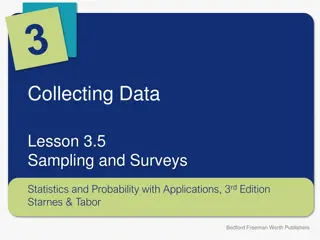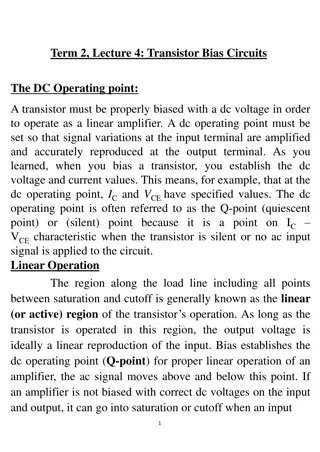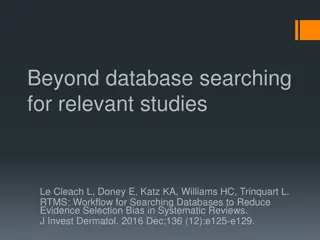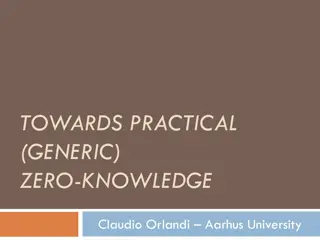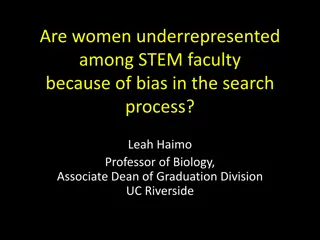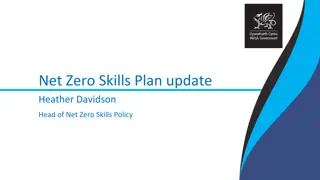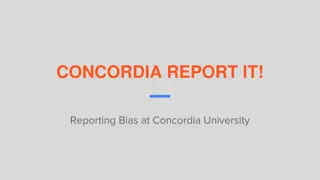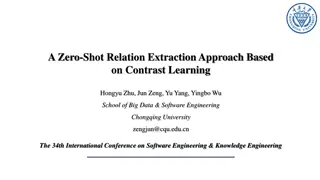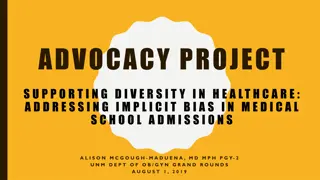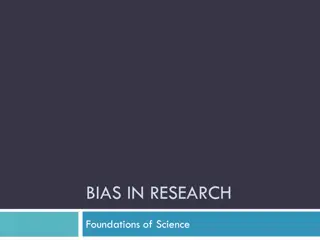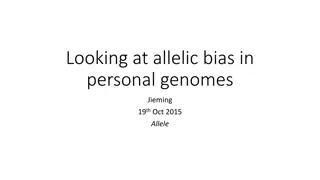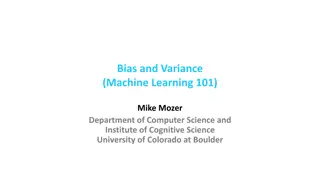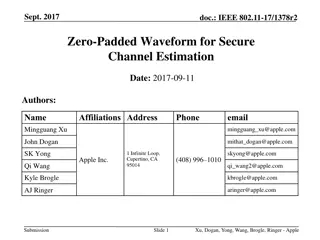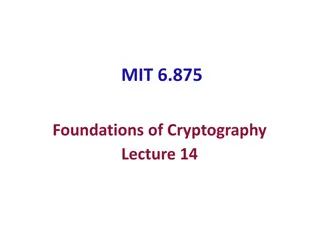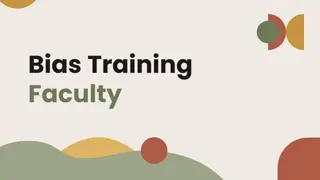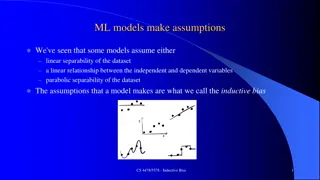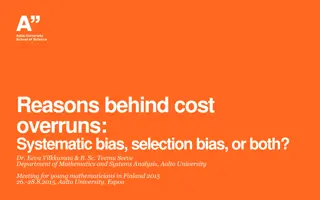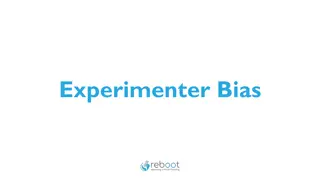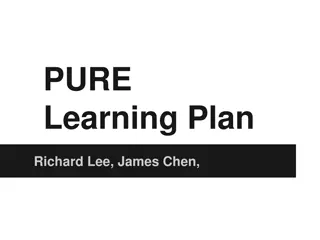Zero Defects Philosophy in Quality Management
Zero Defects Philosophy is a key principle in Total Quality Management, advocating for perfection in products and processes by eliminating defects completely. Philip Crosby popularized this concept, emphasizing that defects are never acceptable. Key concepts include "Quality is Free" and "Do It Righ
0 views • 19 slides
Understanding Culture, Identity, Bias, and Diversity in the Workplace
This presentation highlights the importance of understanding culture, identity, bias, and their impacts in the workplace. Through courageous conversations and diversity training, participants learn to unpack implicit bias, combat bias, and develop teamwork skills. The session emphasizes staying enga
0 views • 19 slides
The Road to Net Zero: Importance of Data Collection in Energy Management and Consulting
Cotopaxi, a leading energy consultancy, highlights the significance of data collection in achieving net-zero emissions. Mark Jones, a senior energy engineer, emphasizes the long-term impact of climate change and the necessity for businesses to adapt. The journey to net-zero involves measuring, monit
1 views • 15 slides
Unconscious Bias
Delve into the realm of diversity, equity, and inclusion through an interactive workshop focused on understanding unconscious bias, reducing bias in a safe space, intentional application in clinical settings, and successful interactions with diverse colleagues and patients. Engage in thought-provoki
1 views • 29 slides
Understanding and Avoiding Bias in Evidence-Based Responses
Recognizing bias in oneself and others is crucial when collecting evidence. Different types of bias, such as confirmation bias, can influence decisions and behaviors significantly. By exploring our own thinking and accessing curated resources to learn about bias, we can develop a deeper understandin
1 views • 14 slides
Evaluating Gender Bias in BERTi: Insights on Large Language Models
This study delves into gender bias evaluation in BERTi, a large language model trained on South Slavic data. It explores issues in language modeling, the impact of social biases in artificial intelligence, and training processes of Large Language Models (LLMs). Additionally, it discusses how LLMs le
11 views • 16 slides
Recognizing Hidden Bias in the Workplace
In the workplace, hidden bias, also known as implicit bias, can significantly impact hiring, employment decisions, and overall workplace dynamics. Deloitte's 2019 State of Inclusion Survey revealed that a substantial percentage of workers experienced bias at least monthly. Hidden biases can be based
3 views • 18 slides
Insights on Zero Miles Food Practices in Slovenia
This interview delves into the awareness and preferences of individuals in Slovenia regarding zero miles food. Topics covered include knowledge about zero miles food, willingness to purchase, preference over ecological food, recent shopping behavior, and awareness of sustainable consequences related
0 views • 10 slides
Investigating Bias and Conflict of Interest: Guidelines for Fair Adjudication
Explore the intricacies of bias and conflict of interest in investigations, learn how to identify and counteract them to ensure fairness in decision-making. Topics include understanding bias, detecting it, LGBTQ terminology, evidence collection, and remedial actions like recusal. Navigate the nuance
0 views • 21 slides
Overcoming Unconscious Bias in Talent Acquisition Process
Overcoming Unconscious Bias in Talent Acquisition Process emphasizes the importance of addressing unconscious bias in hiring practices through awareness and control. The content delves into defining unconscious bias, its impact on diversity, examples, and strategies for managing bias. The University
0 views • 19 slides
Understanding and Utilizing Bias in Legal Proceedings
Exploring the complexities of bias in legal settings, this content provides insights on identifying, addressing, and leveraging bias in litigation. From defining various forms of bias to strategies for cross-examination and case presentation, it equips legal professionals with practical knowledge to
0 views • 19 slides
Understanding Odds Ratio and Bias in Case-Control Studies
This educational material covers the essentials of odds ratio and bias in case-control studies, including how to construct a 2x2 table, calculate odds ratio, define bias, and interpret results. A specific case study on pesticide exposure and cancer is presented to illustrate these concepts. Readers
2 views • 20 slides
Types of Bias in Epidemiological Studies
Bias in epidemiological studies can arise from misclassification of observations and exposures, leading to incorrect associations between variables. Observation bias, misclassification bias, and non-differential misclassification can impact the accuracy of study results, either minimizing difference
1 views • 11 slides
Understanding Diode Junction Biasing: Zero and Forward Bias Conditions
In the world of electronics, diode junction biasing plays a crucial role. This article delves into the concepts of zero and forward bias conditions for diodes. When a diode is zero-biased, no external potential energy is applied, while in forward bias, a specific voltage is introduced to initiate cu
0 views • 21 slides
Is Your Analytics Software Lying to You_ How to Spot and Correct Data Bias
Data bias can distort your analytics and lead to misguided decisions. In this blog, learn how to identify common signs of data bias, understand its impacts, and explore effective strategies to correct it. Enhance the accuracy and reliability of your insights with practical tips and advanced tools, e
3 views • 8 slides
Understanding Bias and Variance in Machine Learning Models
Explore the concepts of overfitting, underfitting, bias, and variance in machine learning through visualizations and explanations by Geoff Hulten. Learn how bias error and variance error impact model performance, with tips on finding the right balance for optimal results.
0 views • 22 slides
Understanding Implicit Bias in Medical Education
Delve into the origins, forms, and manifestations of bias in clinical and medical education settings. Learn strategies to mitigate and address bias through a detailed exploration of terms like System 1 and System 2 thinking, implicit bias, race/racism, sexism, microaggressions, and more. Gain insigh
6 views • 27 slides
Understanding Bias in Sampling and Surveys
Bias in sampling and surveys can arise from undercoverage, nonresponse, and response bias. Even when samples are randomly selected, various factors can lead to inaccurate results. Researchers need to be aware of these biases and take steps to minimize them, such as testing surveys before full deploy
0 views • 8 slides
Understanding Transistor Bias Circuits for Linear Amplification
Transistor bias circuits play a crucial role in setting the DC operating point for proper linear amplification. A well-biased transistor ensures the signal variations at the input are accurately reproduced at the output without distortion. Various biasing methods such as Voltage-Divider Bias, Emitte
0 views • 7 slides
Managing Reporting Bias in Systematic Reviews - Strategies and Consequences
Reporting bias poses a significant threat to the accuracy of systematic reviews, with publication bias affecting up to 50% of trials. This bias distorts treatment effect estimates, leading to exaggerated outcomes. Strategies to mitigate reporting bias include searching bibliographical databases, exp
1 views • 17 slides
Path to Zero: Strategies for Achieving Safety Goals
Delve into the journey towards achieving zero accidents with insights from Debbie Hersman. Explore the concepts of doubling down on successful strategies, accelerating technological advancements, and fostering a safe culture. Discover the roadmap to a future where zero incidents are the norm, backed
0 views • 6 slides
Understanding Transition Bias and Substitution Models in Genetics
Transition bias and substitution models, explored by Xuhua Xia, delve into the concepts of transitions and transversions in genetic mutations, the causes of transition bias, the ubiquitous nature of transition bias in invertebrate and vertebrate genes, the mitochondrial genetic code, and RNA seconda
1 views • 25 slides
Towards Practical Generic Zero-Knowledge Protocols
Exploring the evolution of zero-knowledge protocols, this presentation by Claudio Orlandi from Aarhus University delves into the concepts of Zero-Knowledge from Garbled Circuits, Privacy-Free Garbled Circuits, and more. The talk discusses efficient methods for proving statements and touches on relat
0 views • 29 slides
Gender Bias in STEM Faculty Recruitment
Research indicates that women are underrepresented among STEM faculty members, potentially due to bias in the search process. Studies show evidence of bias against women candidates in male-dominated fields like mechanical engineering, leading to lower hiring rates. Another study revealed bias in fac
0 views • 29 slides
Welsh Government's Net Zero Skills Plan Update by Heather Davidson
Welsh Government is set to publish a Wales Net Zero Skills Plan aligned with Net Zero Wales Plan by 2022 end. The plan covers key sectors like Electricity & Heat Generation, Transport, Residential Buildings, Industry & Business, Waste Management, Agriculture, and more. It aims to provide a detailed
0 views • 11 slides
Addressing Bias-Related Incidents at Concordia University
The report discusses bias reporting at Concordia University, highlighting the importance of understanding and addressing bias-related incidents. It covers examples of bias, distinction between bias incidents and hate crimes, and strategies for response. Presenters from the Office of Multicultural En
0 views • 11 slides
Zero-Shot Relation Extraction Based on Contrast Learning
This paper presents a zero-shot relation extraction approach based on contrast learning, aiming to improve the efficiency of relation extraction tasks. The methodology involves utilizing a knowledge graph to extract relational triplets and leveraging zero-shot learning to automate the process. The s
0 views • 21 slides
Addressing Implicit Bias in Medical School Admissions
Increased diversity in the healthcare workforce benefits health outcomes, but implicit bias can impact candidate selection in medical school admissions. This advocacy project aims to address implicit bias by developing training sessions for new members of the admissions committee at UNM SOM, focusin
0 views • 9 slides
Uncovering Bias in Research: Foundation of Science
Exploring the presence of bias in research, this compilation delves into various types of biases such as confirmation bias and fundamental attribution error. It also addresses the challenges of explaining behaviors rooted in biases and offers insights on reducing bias in the scientific process. Thro
0 views • 6 slides
Investigating Allelic Bias in Personal Genomes
This study delves into allelic bias in personal genomes, examining the influence of various factors such as sequencing datasets, removal of reads with allelic bias, and the impact on allele-specific single nucleotide variants (AS SNVs). The revised AlleleDB pipeline proposed includes steps for const
0 views • 6 slides
Understanding Bias and Variance in Machine Learning
Exploring the concepts of bias and variance in machine learning through informative visuals and explanations. Discover how model space, restricting models, and the impact of bias and variance affect the performance of machine learning algorithms. Formalize bias and variance using mean squared error
0 views • 21 slides
Zero-Padded Waveform for Secure Channel Estimation in IEEE 802.11-17
Security is a vital aspect in IEEE 802.11az, particularly in secure ranging applications. This document introduces zero-padded waveforms to protect channel estimation against attackers aiming to manipulate the range of STAs. The proposal outlines requirements, including the need to eliminate predict
0 views • 12 slides
Zero-Knowledge Proofs in Cryptography
Exploring zero-knowledge proofs in cryptography, this content delves into interactive protocols, perfect zero-knowledge definitions, and the QR protocol's honest verifier and malicious verifier zero-knowledge theorems. It discusses how simulators work to maintain zero-knowledge properties and the si
0 views • 37 slides
Enhancing Bias Training for Faculty at the University of Utah
Transform faculty training on bias at the University of Utah through engaging slides designed to raise awareness, combat implicit bias, and promote inclusivity. Empower educators to recognize and address bias in their teaching practices for a more equitable learning environment.
0 views • 21 slides
Understanding Inductive Bias in Machine Learning
Machine learning models rely on inductive bias, which are the assumptions made by algorithms to generalize from training data to unseen instances. Occam's Razor is a common example of inductive bias, favoring simpler hypotheses over complex ones. This bias helps algorithms make predictions and handl
0 views • 20 slides
Coke Zero Media Plan 2011: Marketing Strategy & Analysis
Coke Zero, a popular zero-calorie soda by Coca-Cola, targets middle to upper-class consumers aged 21-34 living in metro areas. The media plan for 2011 focuses on enhancing brand awareness and market share among this demographic through strategic media objectives and tactics. With a budget of $35 mil
0 views • 24 slides
Understanding Implicit Bias: Exploring Bias, Stereotypes, and Discrimination
Explore the concept of implicit bias through discussions about prior knowledge, feelings pre and post taking implicit association tests, and how this awareness can be applied beneficially in personal and classroom settings. Definitions of implicit bias, stereotypes, prejudice, and discrimination are
0 views • 21 slides
Understanding Cost Overruns in Projects: Systematic Bias vs. Selection Bias
Cost overruns in projects can be attributed to systematic bias, like optimism bias and strategic misrepresentation, or selection bias where projects with low estimated costs are more likely to be selected leading to underestimation. Mitigating these biases is crucial for accurate project budgeting a
0 views • 21 slides
Understanding Experimenter Bias in Research Studies
Experimenter bias occurs when researchers introduce their own biases into an experiment, potentially impacting the outcome. This bias can manifest in various ways, such as manipulating results or selecting participants who confirm preconceived notions. Through examples in studies about toddler sleep
0 views • 9 slides
Investigating Bias in Newspaper Articles through Natural Language Processing
The project, mentored by Jason Cho and advised by Professor Eric Meyer, focuses on automatic bias detection in newspaper articles. It involves recognizing similar article topics and detecting bias using tools like OpenNLP and Python NLTK. The endeavor aims to uncover words correlated with bias and a
0 views • 5 slides
